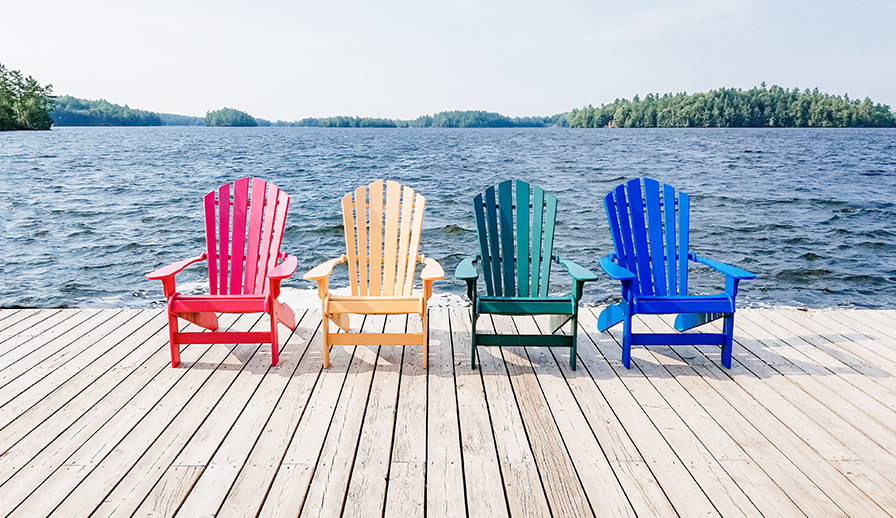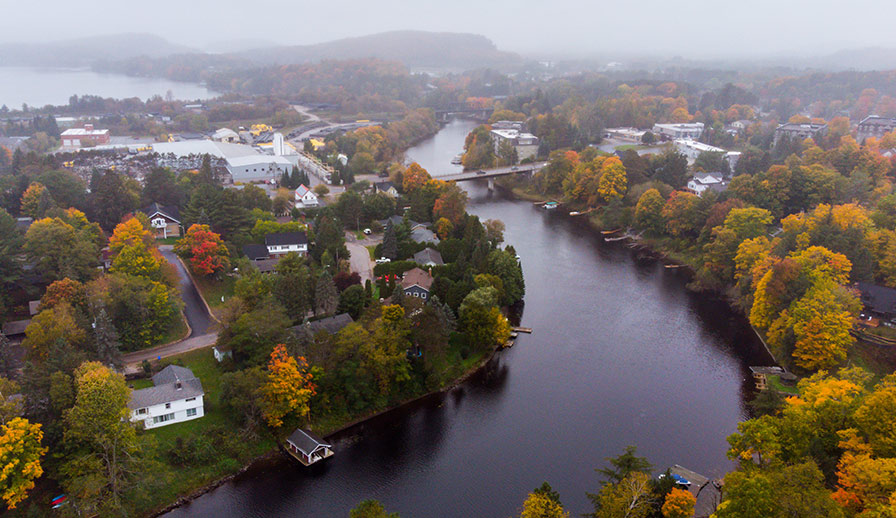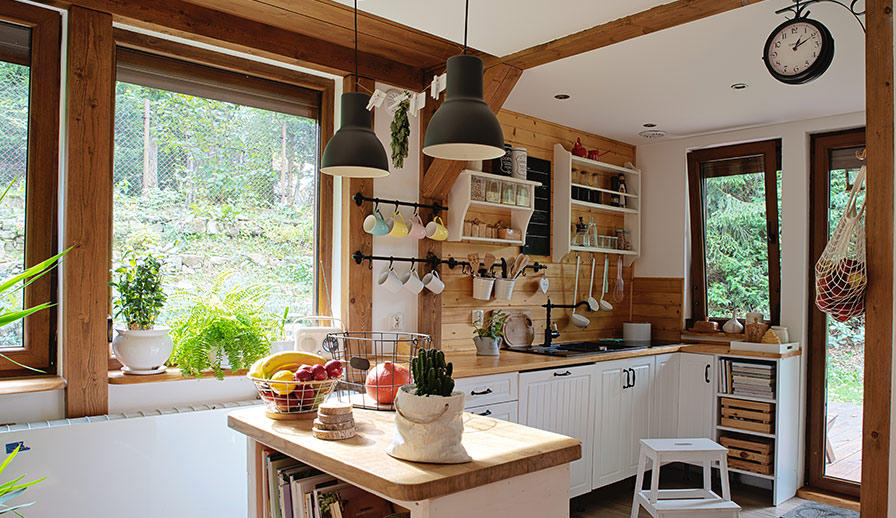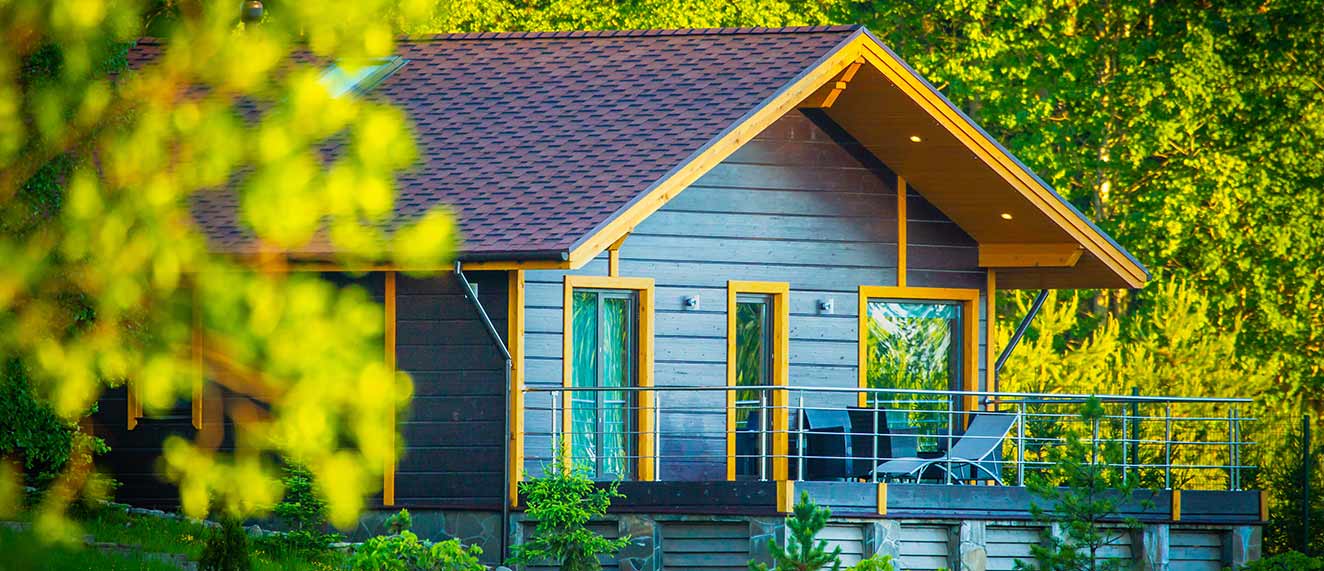Struggling to find content to share on your social media pages?
Stop scrolling through Instagram and Facebook. All you need is REALTOR.ca.
Our consumer lifestyle blog, Living Room, offers content including home improvement, market trends, DIY projects, neighbourhood guides and profiles on unique homes. Living Room publishes exciting new content four times a week (with unique French content for our Francophone fans).
While CREA Café is curated specifically to help your business grow and thrive, Living Room content is perfect to share with your clients.
Owned and operated by the Canadian Real Estate Association (CREA), REALTOR.ca is the No. 1 real estate platform in Canada (Comscore, 2020) with MLS® System listings from across the country.
Share this blog with your clients and followers with the Facebook button below!
You can also follow REALTOR.ca on Twitter, Instagram and Pinterest.
You can read the original blog here.

Since the first round of COVID-19 lockdowns in the spring of 2020, more home buyers have been purchasing properties in cottage country.
Spending more time at home, and longing for additional space both indoors and out, has sent many buyers into rural markets across the country, causing sales to skyrocket in these communities. In December, the Lakelands Association of REALTORS®, which represents Muskoka, Haliburton, Orillia and Parry Sound in Ontario reported new annual records for both non-waterfront and waterfront property sales, which grew by 16.5% and 44.9%, respectively.
Greg McInnis, a sales representative and REALTOR® with Chestnut Park Real Estate Limited who specializes in Ontario’s Haliburton region, says the cottage market was ‘going gangbusters’ consistently throughout 2020. With employer mindsets shifting towards more flexible work-from-home policies, providing home buyers with greater freedom as to where they can live, all indications are pointing to another strong year in 2021, he says.
“People have been looking to get out [to] cottage country not just for the summer season, but all year long,” said McInnis. “We do see a lot of people looking at year-round places, [which] are more important to them. [A place] that they can live at, versus just being able to go away for a few days at a time.”
If you’re looking to make your first home purchase in cottage country, McInnis lays down a few crucial facts you’ll need to know before you buy.
Consider property access and distance to amenities
Whether you’re eying a cottage by the lake or a cabin that’s nestled in the forest, there are many unique settings to consider when buying a rural property. Your cottage or cabin’s location can greatly impact your lifestyle, especially if you decide to live there year-round.
One of the first things you’ll likely need to determine when buying a cottage or recreation property is how you’ll be able to access the home. If you plan to live at your cottage or cabin year-round, McInnis says you’ll want to ensure the roads to get to and from your residence are well maintained and accessible, especially during the winter.
How remote your cottage is will also play a role in your purchase. McInnis says the recent surge of all-season cottage buyers don’t want to feel too isolated, and want to be fairly close to neighbours in case there’s an emergency.
McInnis explains you’ll also want to consider proximity to basic amenities, such as grocery stores, pharmacies, and hospitals. Most cottage buyers prefer to be within 30 minutes of a small town where these services are available, he says, and up to three hours from a major urban centre.
“They want to stay three hours or under away from the city, even if they are moving out or semi-permanently moving out,” says McInnis. “They still want to have access to the city for jobs or be able to go in and do whatever [they need to], so they don’t want to be too, too far away.”

Learn about rural infrastructure and home winterization
Unlike a city or suburban home, recreation properties don’t always share municipal services. Instead, cottage dwellers will have to get familiar with the rural infrastructure needed to independently manage their home’s water, heating and sanitation utilities.
McInnis says buyers will have to be aware of the types of systems their home uses. Some properties feature dug or drilled wells, and source water from nearby rivers and lakes. Make note of how the home processes sewage, like through a septic tank, which is stored on-site and underground. You’ll also need to learn about how you can dispose of your garbage, whether a regular pick-up service is available or if you’ll be required to drive to the local dump.
If your plan is to live at the cottage/cabin all-year round, it’s vital your home is properly winterized and can withstand the cold. McInnis says to check the home is well insulated in the walls, pipes and roof, and to make sure the heating source is efficient for the size of the property. Be sure the cottage can also supply water in the freezing months with the help of a defrost line into the well or a heat trace that will keep the pipes from freezing.
It’s not uncommon to get zero service bars in rural areas either—be sure to confirm you can receive reliable mobile phone and internet service at the home, especially if you’re working remotely.
“Cell and internet service are obviously very important, especially for people that are doing a lot of work from home,” says McInnis. “There are some areas of cottage country that have pretty good service. There’s other areas that don’t.”

Calculate insurance and upkeep costs
Just like any home, recreation properties come with a range of maintenance costs, though some of these expenses are unique to rural areas.
McInnis says you’ll want to factor in long-term upkeep expenses, like keeping the driveway in good condition so it’s easily accessible. Your property may be on a septic system, which will require pumping every three to five years depending on its size and usage, which also contributes to maintenance costs. When looking at a property, McInnis recommends examining the health of any trees and their orientation towards the house—cutting down sickly shrubs can get expensive.
“Danger trees can cost $1,000 to take down, so if you’ve got a number of those that you’ve got to take down in the next few years, that can really add to the cost of your purchase,” explains McInnis.
When it comes to financing your property, there are a number of factors that will contribute to your insurance rates, such as your distance from local fire stations, if your home is elevated from nearby water, and even how often the home is occupied.
The mortgage lending process will also look a bit different from what’s involved for your typical city or suburban home. If your home meets the standards to be a primary residence, McInnis explains you may be able to put down a 5%t mortgage deposit, though some lenders could request 25%in some cases. Hence, it’s crucial to understand the different implications for each mortgage provider.
“There’s a lot of things to think about, which is probably why it’s good to have a professional real estate agent looking out for you so they can go over all of those things with you,” says McInnis.
Enlisting the help of a local REALTOR® when buying a cottage ensures you can get the most up-to-date advice on transitioning to rural living. Connect with the best REALTOR® for your needs at REALTOR.ca, where you can find thousands of agents that specialize in Canada’s many cottage communities.





Much of this article is relevant also to what we refer to in BC as cabins or recreational accommodations. However since it is exclusively referred to as “Cottage” it becomes less likely to be viewed by clients in n the West of this country. Too bad because it would have been great as a shareable.
Hi Anny,
Thank you for your feedback. We’ve updated the article to reflect that these properties can be referred to by different names.